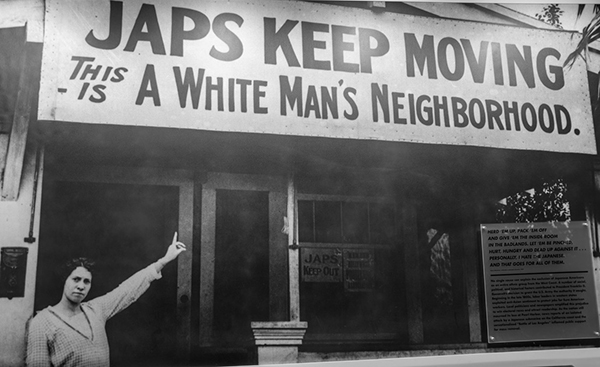By Starlett Quarles
Contributing Columnist
I’ve had a paradigm shift when it comes to the probability of us receiving reparations from slavery.
Last month I interviewed reparations activist, Tiffany Quarles, co-founder of the National Assembly of American Slavery Descendants, Los Angeles. At the time, she stated that a vote was pending by a nine-member task force as to whether eligibility for reparations for Black Californians should be based on lineage or race.
Since then, this California task force has voted to base eligibility on one’s lineage and not their race-limiting compensation to those who are direct descendants of slaves. Wait, what? Do you know what that means?
That means that Black Californians are going to be the first to receive compensations for the 400 years of blood, sweat and lives our ancestors gave into building this country. That is historic.
And I must admit, like most Black people, I never thought I’d live to see the day when we would actually receive reparations for slavery. In fact, whenever the subject came up, it would really go in one ear and out the other.
But I was wrong, pessimistic, and weak in my faith. One of those people Tiffany addressed when she said, “A lot of people … didn’t believe [reparations] was possible. They felt like, you know, it’s a pipe dream, it will never happen.”
And she was right. So here we are. Reparations is no longer just a “pipe dream.” It’s reality. And for Black Californians, it’s now a law. More specifically Assembly Bill 3121, the Task Force to Study and Develop Reparation Proposals for African Americans.
Signed by Gov. Gavin Newsom in 2020, AB 3121 established a two-year reparations task force with the specific mission to study the institution of slavery and its harms; draft a research proposal that analyzes the economic benefits of slavery; educate the public about those findings; and then make recommendations to the state Legislature regarding potential compensation.
Fast forward to today. Eligibility has been determined. It’s lineage. Fine. We have a starting point.
So, I ask you: What does reparations look like for you? What do you feel you are owed as a result of the enslavement of your ancestors?
The clock is ticking. We must mobilize quickly. Based on last month’s eligibility decision, the task force now has less than 18 months to develop a compensation plan and make recommendations to the Legislature. It’s a huge task and it’s going to take the time and the attention of all of us.
In my humble opinion, like the civil rights movement, receiving our due reparations for slavery needs to become our “New Black Agenda.” It’s a single, focused and universal economic justice strategy that will benefit many Black Americans irrespective of their socioeconomic status.
And to my peers of Gen Xers, “The Sandwich Generation,” the ones with living Baby Boomer parents and Millennial children, we need to make this reparations effort a priority. We are this country’s new leaders. So, the time is now for us to step-up-to-the-plate, grab the baton, and really help to push this reparations agenda forward. First in California and then at the federal level with House Resolution 40.
Not only would this effort catapult a national conversation around creating more economic justice avenues for Black Americans, but it will also change the trajectory of the conversations we have about our slave history with our family, friends and children.
It would appear to me that as we start talking about why we’re fighting on behalf of our enslaved ancestors, our language would switch from focusing solely on what “was done to us” to focusing more on what is “now owed to us.”
So, again I ask you: What does reparations look like for you? And not only that, what does the next 18 months look like on behalf of Black Californians?
I have so many questions. For instance, now that eligibility is based on one’s lineage, how will that be determined? DNA? Family records?
And what about compensation? How will the amount be determined and paid out? A check? Business grants? Homeownership assistance? Free education? I know I could use a check, some forgiveness on my student loans and no income tax for the rest of my life.
And the community outreach? Have you heard about AB 3121 passing and the creation of the task force, or is this your first time learning about it? In all transparency, as of late, the communications team awarded this outreach contract has been met with much scrutiny about their educational efforts.
But irrespective of the communications team’s lackluster efforts, I implore you to be more engaged with the efforts of the California Reparations Task Force and spread the word about AB 3121. Join their mailing list for updates at: OAG.ca.gov.
The world is watching, and we can’t afford to miss our ancestorial inheritance, as well as the opportunity to create a successful reparations plan that can be duplicated throughout the United States and beyond.
In closing, I’d just like to give a huge shout out and a heartfelt thank you to Secretary of State Shirley Weber for introducing AB 3121 when she was in the state Assembly, and state Sen. Steven Bradford for co-authoring the bill; the task force’s chair, Kamilah Moore, for her leadership; and to my cousin Tiffany Quarles, and all the other reparations activists who have tirelessly fought for us to finally receive our “40 Acres and a Mule.”
Starlett Quarles is a Gen X Advocate, public speaker and host of the internet TV Talk Show, “The Dialogue with Starlett Quarles.” For more, please visit www.TheDialogueLA.com.











